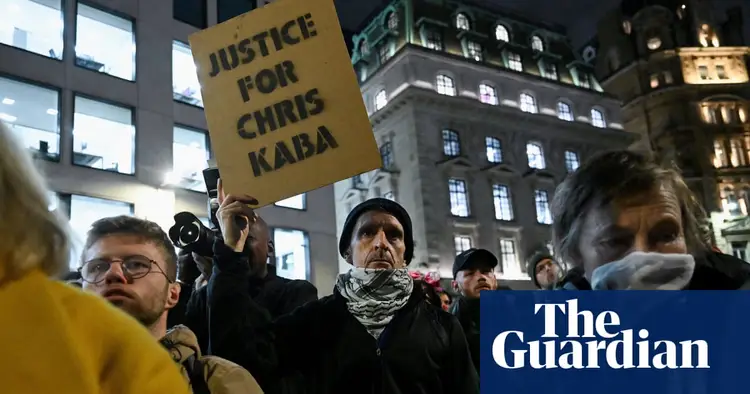Chris Kaba death: why officer was not charged with manslaughter

After Martyn Blake was found not guilty of murdering Chris Kaba, there have been numerous questions surrounding the case. A significant inquiry is why he wasn’t charged with manslaughter instead.
The idea is that it was likely going to be a challenge to persuade a jury to find a police officer guilty of the most severe kind of murder. In contrast, proving manslaughter might have been simpler and more acceptable.
The claim seems to be backed by the reality that no police officer has ever faced conviction for killing a suspect. In fact, the only instance in the past 37 years where an officer has been found responsible for a death while on duty involved a manslaughter conviction.
In the 2022 case involving PC Benjamin Monk, who was found guilty in the death of ex-footballer Dalian Atkinson, the officer did not use a gun to end the former athlete's life. Instead, he employed an electric stun gun and struck Atkinson in the head while he was on the ground.
Monk was found guilty of unlawful act manslaughter. This type of manslaughter happens when someone dies because of a criminal act that a sensible person would recognize as being potentially harmful to the victim. On the other hand, a murder charge involves having the intention to kill or inflict serious injury. In Monk's situation, the jury needed to determine if his actions were unlawful and how much harm he meant to cause to Atkinson, or what harm he should have anticipated could occur.
Blake claimed he didn't mean to kill Kaba and explained in court that he was targeting the central part of Kaba's body. However, since the bullet hit Kaba in the head, it would be hard to convince anyone that the intention behind shooting was anything other than to inflict serious injury. This challenge would apply to similar situations involving police officers using firearms.
The main point of focus in the Blake trial wasn't about how much harm he meant to inflict on Kaba, but rather whether his actions were justified, specifically if he was acting in self-defense and to protect his coworkers, as he asserted during the trial.
If the jury believed that he acted illegally, it would just need to determine that Blake aimed for Kaba's chest with the intention of causing serious injury to decide he was guilty of murder. Therefore, it seems improbable that presenting the jury with the possibility of unlawful act manslaughter would have changed the outcome.
After Blake testified in his defense, the prosecution requested that the trial judge present the jury with a lesser charge of manslaughter, but Mr. Justice Goss declined. In a similar fashion, during the most recent murder trial of armed officer Tony Long for the 2005 shooting of Azelle Rodney, the judge also refused to let the jury consider a manslaughter charge in addition to the more serious charge they were facing.
A representative from the Crown Prosecution Service stated, "We argued the case as a murder, believing there were no credible alternatives. Our position was that the defendant applied deadly force, indicating he aimed to kill or, at the very least, to inflict serious injury, and that he was not acting in legitimate self-defense."
They argued that Blake’s testimony, which indicated he did not mean to inflict serious injury, suggested that the jury might still consider manslaughter. However, Goss dismissed this point.













































